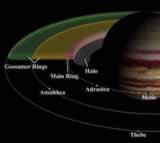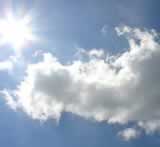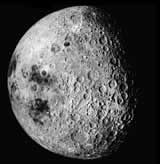
|

|
|
Funny on other blogs: Privacy Policy |
�
10 Science stuff you got wrong at School Published on 3/25/2006 Water IS blue, not just because of the sky
Electricity does NOT travel at the speed of light
Many textbooks claim that Electricity (electrons) within wires flows at nearly (or even
exactly at) the speed of light. In fact it's the electrical energy which flows rapidly
("rapidly" is still slower than the speed of light). Electrons, which have mass, can
never travel at the speed of light due to the theory of relativity. The drift velocity of the
charges in an electric current is extremely slow, on the order of centimetres per hour. Where
the electric current is visible, as in electrophoresis, the slow movement of charge carriers
can be seen directly.
Seasons are NOT the same length
You WON'T get a cold just from low temperature It is a very widespread misconception that the common cold can be caused by (or the chance of getting infected by it is increased by) exposure to cold weather. In reality, the common cold is caused by viruses and has nothing to do with low temperatures. Saturn is NOT the only planet with rings
Meteors are NOT hot when they land on Earth When a meteor lands on Earth, it usually is not hot. It's usually warm. A meteor's great speed is enough to melt its outside layer, but any molten material will be quickly blown off (ablated), and the interior of the meteor doesn't have time to heat up because rocks are poor conductors of heat. Also, atmospheric drag can slow small meteors to terminal velocity by the time they hit the ground, giving them some time to cool down. Clouds do NOT form because of the air's temperature
People DID know earth was not flat before Columbus Some believe that Christopher Columbus had a hard time receiving support because Europeans believed in a flat Earth. In fact, sailors and navigators of the time knew that the Earth was spherical, but (correctly) disagreed with Columbus's estimates of the distance to the Indies. If the Americas did not exist, and Columbus had continued to the Indies (even putting aside the threat of mutiny he was under) he would not have survived long enough to reach them. The Great Wall of China is NOT particularly visible from space
While at a low orbit, the Great Wall of China can certainly be seen from space but it is
not unique in that regard. From a low orbit of the earth, many artificial objects are
visible on the earth, not just the Great Wall of China. Highways, ships in the sea, dams,
railroads, cities, fields of crops, and even some individual buildings.
There is NO "dark side" of the Moon
Submit to:  Del.icio.us Del.icio.us
 Netscape Netscape
 Furl Furl
 Facebook Facebook
� |
|
 Many believe that lakes and oceans are blue "only" because they reflect the blue sky.
Actually water looks blue because water is blue; the water molecules do absorb some
light, and they absorb red frequencies more than blue. The effect is small, so the
blue color only becomes obvious when observing layers of water many meters (or more) thick.
(This effect is noticeable to a lesser amount in white-painted swimming pools.) In salt water
or mineral-laden fresh water, the color of dissolved minerals can also be seen.
Many believe that lakes and oceans are blue "only" because they reflect the blue sky.
Actually water looks blue because water is blue; the water molecules do absorb some
light, and they absorb red frequencies more than blue. The effect is small, so the
blue color only becomes obvious when observing layers of water many meters (or more) thick.
(This effect is noticeable to a lesser amount in white-painted swimming pools.) In salt water
or mineral-laden fresh water, the color of dissolved minerals can also be seen.
 Due to the earth moving fastest in its orbit when closest to the Sun, the southern summer
/ northern winter is the shortest season, with northern summer / southern winter being the
longest. However, the difference on earth is only a matter of a few days, while on
Mars with its more eccentric orbit the difference is more distinct.
Due to the earth moving fastest in its orbit when closest to the Sun, the southern summer
/ northern winter is the shortest season, with northern summer / southern winter being the
longest. However, the difference on earth is only a matter of a few days, while on
Mars with its more eccentric orbit the difference is more distinct.
 Jupiter, Uranus, and Neptune also have rings, though those of Saturn are the most
visually striking (and the only ones easily seen).
Jupiter, Uranus, and Neptune also have rings, though those of Saturn are the most
visually striking (and the only ones easily seen).
 It is incorrectly believed that clouds form because cold air "holds" less water vapor than
warm air. Air has no capacity to hold water vapor. It is the temperature of the water
itself (and its surroundings) that causes humidity, condensation and clouds to form.
It is incorrectly believed that clouds form because cold air "holds" less water vapor than
warm air. Air has no capacity to hold water vapor. It is the temperature of the water
itself (and its surroundings) that causes humidity, condensation and clouds to form.
 The Moon is in synchronous orbit --this means, it takes exactly the same time to rotate
once around its axis than it does to make one orbit around the Earth-- so it has a far
side, because it always keeps the same hemisphere pointed towards Earth. When the Moon is
roughly between the Sun and Earth, it is daytime for the "far side" and night time for the
"near side". When the Moon gets "behind" the Earth, it is night time for the "far side" and
daytime for the "near side".
The Moon is in synchronous orbit --this means, it takes exactly the same time to rotate
once around its axis than it does to make one orbit around the Earth-- so it has a far
side, because it always keeps the same hemisphere pointed towards Earth. When the Moon is
roughly between the Sun and Earth, it is daytime for the "far side" and night time for the
"near side". When the Moon gets "behind" the Earth, it is night time for the "far side" and
daytime for the "near side".






























